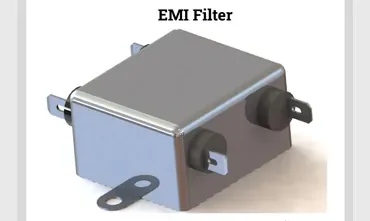At PurityElec, we engineer high-performance EMI filters designed to eliminate unwanted electromagnetic interference and radio frequency noise from AC and DC power lines. Our filters ensure smooth, compliant, and interference-free operation for sensitive electronics in industrial, commercial, and defense applications.
Whether you need single-phase, three-phase, or custom EMI solutions, PurityElec's EMI Filters deliver exceptional performance, durability, and reliability
An EMI (Electromagnetic Interference) Filter is a device that reduces unwanted electromagnetic noise in electrical systems to protect equipment, improve power quality, and ensure compliance with EMC regulations.


